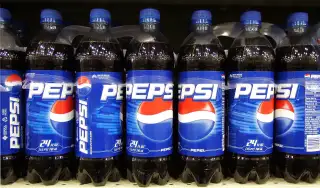Philadelphia Figured Out a Soda Tax That People Might Actually Like

Soda bans and taxes have always encountered fierce debate. One side wants to use it to try to encourage healthy behavior and the other sees it as an attack on the freedom of personal choice.
Many cities, including Philadelphia, have tried to impose soda taxes before, but failed due to the fierce efforts of the soda industry and people chafing at the thought of restrictions on what they put into their bodies.
Now the City of Brotherly Love is trying to win residents over with its new soda tax, not by pushing the nanny-state, health angle, but instead by focusing on the economic benefits. Philadelphia's mayor Jim Kenney says the funds from the proposed tax, which the city council will vote on in June, could raise up to $400 million for schools and other initiatives, NBC News reports.
Simultaneously, lowering soda consumption saves city and its residents money because it reduces the cost of treating health issues tied to high sugar consumption, such as diabetes and obesity.
The public relations angle is key in another way—making this not about the government versus the people, but the city versus corporations looking to prey on people. "Framing is important," New York University health expert Marion Nestle told NBC News. "Berkeley framed the tax measure as Berkeley Against Big Soda. That worked."
Additionally, Philadelphia looks to challenge a commonly belief that a soda tax would be a regressive tax—one that takes a larger amount from low-income people than higher-income people—since soda-consumption is most popular in low-income demographics. In reality, the benefits laid out by the mayor would vastly outweigh the tax—which the poor likely wouldn't even shoulder. "The rich pay the tax," University of North Carolina nutrition professor Barry Popkin told NBC. The poor, on the other hand, will simply buy less soda.